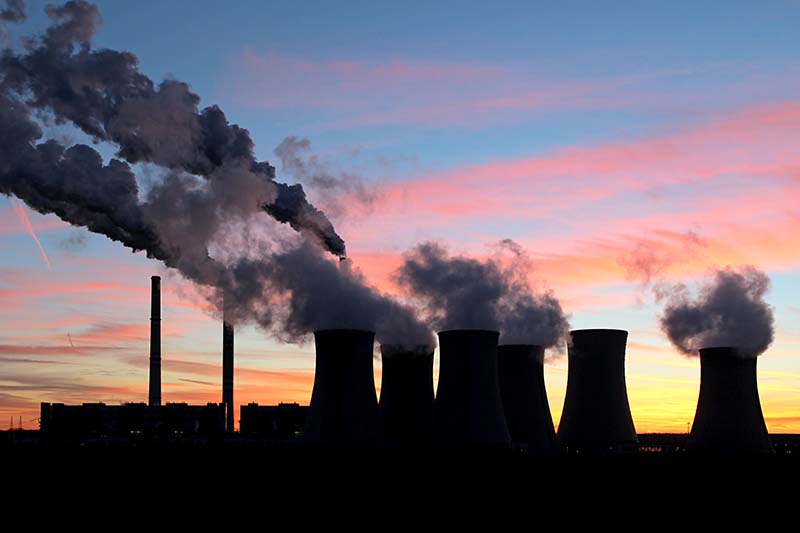All of the little things can add up to real change, but to make a difference we all need to pull our weight.
It has a radius of just 3959 miles, has been around for approximately 4.5billion years and is the only place of its kind in the universe.
For thousands of years our delicate planet has maintained a perfect balance between land and sea, and provided everything that we, and all the animals that live on it, need.
Recently, however, warnings about climate change, carbon emissions and our over-use of plastic and waste have really hit home.
According to the recent IPCC report from the UN’s Intergovernmental Panel on Climate Change, we have only 12 years to make massive changes to global energy use to limit the impact of global warming to “moderate” levels.
As a result, many of us are now making a keen effort to play a part in helping to end the cycle of waste.

From taking care to recycling our household waste properly, to reusing items like glass jars, mending clothes rather than throwing them out and swapping the school run in the car for walking or cycling, it’s all making a difference.
And many are finding it doesn’t have to be a dramatic change. Just opting to buy locally sourced produce can help cut down the distance goods have to travel to get to us – and helps support the local economy. Increasing numbers of shops are also beginning to welcome customers bringing their own containers to take home their purchases, helping to avoid unnecessary packing.
It might not seem much, so can all of these seemingly little things add up to make a difference? Well, yes – in England we’ve already seen the introduction of charges for single use plastic bags result in a drop from seven billion in the year before the charge, to just 500 million in the six months after it. Similarly, if we all got a smart meter to monitor our energy use, we could collectively save up to 30 million tonnes of CO2 by 2030.
In the home, simple things like switching off electrical appliances and popping on a cosy cardigan rather than turning up the heating are helping us to cut down on our fossil fuel consumption.
And soon, more of us will also be taking bigger steps to saving on our carbon emissions by swapping our petrol and diesel vehicles for zero emission electric vehicles which we can charge at home.
But in the meantime, we can all keep on changing our habits in and out of the home to ensure we’re all helping to reduce our country’s carbon footprint. Smart meters are installed at no extra cost by your energy supplier and are playing a vital role in the shift towards creating a smarter, greener energy grid that makes use of cleaner sources of energy such as wind and solar, helping to cut our dependence on fossil fuels which pump out harmful CO2 emissions.
Through seeing how much energy we’re using, we can get into the habit of turning off appliances we don’t really need, thereby avoiding waste and helping to cut carbon emissions.
Our precious planet’s future is looking green – as long as we all play a part in helping it get there.

While personal responsibility for the environment matters, businesses need to step up to make a big difference.
That’s the view of sales executive Craig Walters from Aberdeen, who is tackling the problem from both sides.
“I used to drive everywhere, but now I walk or take the bus. It saves on parking and on money, of course, but is a lot more environmentally friendly.
“I used to work in hospitality, and was part of my firm’s Green Team. We’d always be thinking of the next way we could cut down on waste, from food waste to packaging and glass etc. It was all about lowering the hotel’s carbon footprint.
“There’s such a big emphasis in hospitality when it comes to recycling, as an industry it needs to be very, very conscious of what it does.
“I think every business should have its own Green Team and should be thinking about it – even down to thinking about how many printed letters they send out.”
From a personal viewpoint, the next thing on his agenda is energy.
“I’m looking to switching energy supplier, so I will be thinking of a smart meter at that time, too.”
